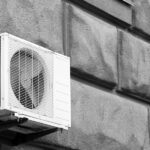
Step-by-Step Guide to Efficient Boiler Repair
Efficient boiler repair is crucial for maintaining the comfort and safety of your home. Whether you’re facing issues with heating or hot water, understanding the repair process can save time, money, and prevent further complications. This step-by-step guide will walk you through the essential procedures, from diagnosing common problems to implementing effective solutions. By following these expert tips, you can ensure your boiler operates smoothly, enhancing its longevity and performance. Let’s dive into the practical steps for a seamless boiler repair experience.
Understanding the Importance of Boiler Repair
Regular boiler repair is essential for ensuring the safety, efficiency, and longevity of your heating system. Boilers are responsible for providing heat and hot water, making them a critical component of home comfort. Neglecting maintenance or repairs can lead to reduced efficiency, higher energy bills, and even dangerous situations like carbon monoxide leaks.
Timely repairs can prevent small issues from escalating into major problems, saving you money in the long run. Moreover, a well-maintained boiler operates more efficiently, reducing your environmental footprint. Understanding the importance of boiler repair helps you prioritize maintenance, ensuring your system runs smoothly and safely throughout its lifespan.
Identifying Common Boiler Issues
Identifying common boiler repair issues is the first step towards effective maintenance and repair. Some frequent problems include low pressure, which can affect the boiler’s ability to heat water; strange noises like banging or whistling, often caused by air in the system or a failing pump; and no heating or hot water, which might indicate issues with the thermostat or pilot light.
Leaks and drips are also common and can be due to corrosion or a broken pressure valve. Recognizing these symptoms early allows for prompt and efficient repairs, preventing more severe damage and ensuring your boiler remains functional and reliable.
Safety Precautions Before Starting Boiler Repair
Ensuring safety is paramount when undertaking boiler repair. Before you begin, always turn off the boiler and disconnect it from the power supply to prevent electrical hazards. It’s crucial to allow the boiler to cool down completely, as working on a hot boiler can lead to burns or other injuries. Wear appropriate protective gear, including gloves and safety goggles, to protect yourself from sharp edges, hot surfaces, and any chemicals you might use.
Check for gas leaks by smelling for gas or using a gas leak detector, and if you detect any, do not proceed with the repair and contact a professional immediately. Ensure the area around the boiler is well-ventilated to avoid inhaling any fumes. Lastly, keep a fire extinguisher nearby as a precautionary measure. Following these safety precautions can significantly reduce the risk of accidents and ensure a safe repair process.
Tools Needed for Efficient Boiler Repair
Having the right tools is essential for a successful and efficient boiler repair. Here’s a list of essential tools you’ll need:
- Adjustable Wrench: Vital for loosening and tightening various nuts and bolts. Its adjustable feature allows it to fit different sizes, making it versatile for multiple tasks.
- Screwdrivers: Both flathead and Phillips screwdrivers are necessary for removing and securing screws on boiler panels and components.
- Multimeter: This tool is crucial for checking electrical connections and ensuring there is no power running through the system before you start working.
- Pipe Wrench: Designed for working with pipes and fittings, a pipe wrench helps you grip and turn pipes, making it easier to replace or tighten them.
- Plumber’s Torch: Useful for soldering copper pipes, a plumber’s torch ensures secure and leak-free connections during boiler repair.
These tools will equip you to handle most boiler repair tasks efficiently, ensuring that you can address issues promptly and safely.
Step 1: Inspecting the Boiler
The first step in efficient boiler repair is a thorough inspection. Begin by visually examining the exterior for any obvious signs of damage, such as leaks, rust, or cracks. Check all connections and fittings to ensure they are secure and not corroded. Inspect the pressure gauge to ensure it is within the recommended range. Look for any error codes displayed on the control panel, as these can give you an indication of what might be wrong. Finally, listen for any unusual noises when the boiler is running, as these can also provide clues about potential issues.
Step 2: Diagnosing the Problem
Once the inspection is complete, proceed to diagnose the specific problem. Identify whether the issue lies in the boiler’s mechanical, electrical, or fuel system. Check the thermostat and ensure it is functioning correctly. Use a multimeter to test electrical components and wiring for continuity and proper voltage. Examine the pilot light or ignition system if the boiler is not producing heat. Additionally, review the error codes identified during the inspection to narrow down potential causes. Accurate diagnosis is crucial for targeting the right repair solutions and avoiding unnecessary work.
Step 3: Cleaning the Boiler Components
Cleaning is a vital part of boiler repair that can improve efficiency and prevent future problems. Begin by turning off the power and allowing the boiler to cool. Remove any dust and debris from the exterior and interior components using a vacuum and a soft brush. Clean the heat exchanger to remove any soot or buildup that can hinder heat transfer. Ensure the burner is free from dirt and obstructions. Additionally, check and clean the condensate trap to prevent blockages. Regular cleaning helps maintain the boiler’s performance and extends its lifespan.
Step 4: Replacing Faulty Parts
After diagnosing and cleaning, identify any faulty parts that need replacement. Common components that may require replacement include the thermostat, pressure relief valve, or ignition system. Ensure you have the correct replacement parts for your specific boiler model. Carefully remove the damaged parts and install the new ones, following the manufacturer’s instructions. Double-check all connections and fittings to ensure they are secure and leak-free. Replacing faulty parts with precision is essential for restoring the boiler’s functionality and efficiency.
Step 5: Testing the Repaired Boiler
Once repairs are complete, it’s time to test the boiler to ensure everything is working correctly. Reconnect the power and turn on the boiler. Monitor the system for any unusual noises, leaks, or error codes. Check the pressure gauge to ensure it remains within the recommended range. Verify that the boiler is producing heat and hot water as expected. Test the thermostat and other controls to ensure they are functioning properly. Performing a thorough test confirms the success of the repair and ensures the boiler is safe and efficient to operate.
Maintenance Tips for Preventing Future Boiler Repairs
Regular maintenance is key to preventing costly boiler repairs and ensuring your system runs smoothly. Here are five essential tips to help you maintain your boiler and avoid future issues:
- Schedule Annual Inspections: Hire a professional to inspect and service your boiler annually. This ensures any potential problems are identified and addressed early, preventing major breakdowns and extending the boiler’s lifespan.
- Bleed Radiators Regularly: Air can get trapped in your heating system, causing radiators to become inefficient. Bleed your radiators at least once a year to release any trapped air and ensure optimal heating performance.
- Monitor Boiler Pressure: Check your boiler’s pressure gauge periodically to ensure it stays within the recommended range. Low pressure can lead to heating issues, while high pressure can cause leaks and damage to the system.
- Clean Boiler Components: Keep the boiler and its components clean by removing dust, debris, and any soot buildup. This includes cleaning the heat exchanger, burner, and condensate trap to maintain efficient operation.
- Check for Leaks and Drips: Regularly inspect your boiler and surrounding pipes for any signs of leaks or drips. Addressing these issues promptly can prevent water damage and avoid more serious problems in the future.
When to Call a Professional for Boiler Repair
Knowing when to call a professional for boiler repair is crucial to ensure safety and prevent further damage. If you notice persistent issues like strange noises, frequent pressure drops, or irregular heating, it’s time to seek expert help. These symptoms often indicate deeper problems that require specialized knowledge and tools to diagnose and fix. Additionally, if your boiler shuts down unexpectedly or displays error codes you don’t understand, a professional technician can quickly identify and resolve the issue, restoring your system to proper functionality.
Attempting to repair complex boiler problems on your own can be risky and may lead to more extensive damage. Professionals are trained to handle hazardous situations, such as gas leaks or electrical faults, which can pose significant safety risks. Moreover, certified technicians ensure that all repairs comply with industry standards and regulations, providing peace of mind and extending the lifespan of your boiler. When in doubt, it’s always better to err on the side of caution and call a professional to handle any boiler repair needs.
Efficient boiler repair is essential for maintaining a comfortable and safe home. By following this step-by-step guide, you can address common boiler issues and ensure your system operates smoothly. However, some repairs require professional expertise. If you encounter complex problems or need assistance, don’t hesitate to contact Cool Factory, Inc.
Our team in Sterling, VA, is ready to help with all your boiler repair needs. Call us at (703) 713-5113 to schedule a service or consultation. Trust Cool Factory, Inc. to keep your boiler in top condition, ensuring warmth and comfort in your home year-round.






